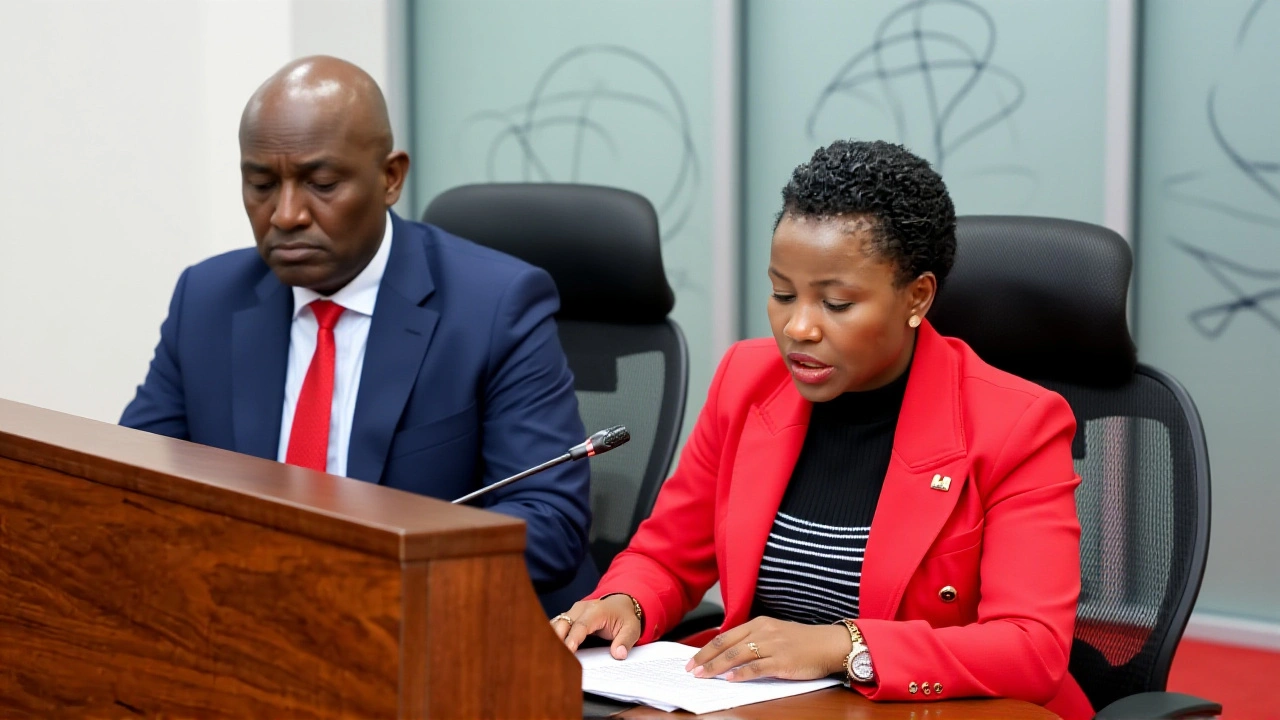Wycliffe Oparanya – Kenyan Politics, County Development and Infrastructure Insights
When you read about Wycliffe Oparanya, the former Deputy President of Kenya and a leading voice on devolved governance, you step into the crossroads of Kenyan politics, the ever‑shifting arena where national agendas meet local priorities. He also drives county development, the push for better services, roads and jobs at the county level, which leans heavily on infrastructure projects, highways, rail links and water schemes that boost economic activity. All of this is underpinned by the principle of devolution, the transfer of power from the central government to Kenya’s 47 counties. In short, Wycliffe Oparanya sits at the heart of these intertwined forces.
Why Oparanya’s Work Matters for Everyday Kenyans
First off, Oparanya’s push for county development isn’t just a political slogan; it translates into real‑world changes like new schools in Kitui, upgraded health centres in Mombasa and better road networks that cut travel time for farmers. Those improvements stem from his belief that local solutions need local funding, meaning county budgets must grow alongside national allocations. This belief fuels the semantic triple: Wycliffe Oparanya champions county development, which requires robust infrastructure, which is enabled by devolution reforms. When you connect the dots, you see how a single leader can influence budgeting, project planning and community outcomes.
Second, Kenyan politics often feels like a tug‑of‑war between the president’s office and county governors. Oparanya navigates that tension by lobbying for clear policy guidelines that prevent overlap and waste. For example, his advocacy led to a joint task force that audits road contracts, ensuring that funds earmarked for highways actually reach construction crews instead of disappearing in bureaucratic delays. That kind of oversight links the entities of politics, infrastructure, and accountability in a tidy, understandable way.
Third, infrastructure projects under Oparanya’s watch bring a ripple effect on the economy. A newly paved road can cut transport costs for a farmer by 20%, which boosts profits and encourages reinvestment in seed and fertilizer. This creates a feedback loop where better infrastructure fuels economic growth, which then generates more tax revenue for county development. The semantic connection here is clear: Infrastructure projects boost the economy, which expands county budgets, which fuels further development. Readers can see how these pieces fit together without needing a textbook.
Fourth, devolution isn’t just a buzzword; it reshapes how decisions are made on the ground. Oparanya’s push for “county‑first” planning means that local leaders get a say in where new schools or clinics go, rather than leaving those choices to distant ministries. This approach aligns with the triple: Devolution empowers local leaders, which improves service delivery, which raises citizen satisfaction. When you hear stories about a new water pump in a remote village, you can trace it back to the policy framework Oparanya helped shape.
Finally, Oparanya’s influence stretches beyond Kenya’s borders. He’s often invited to regional panels on African devolution, sharing Kenya’s lessons with neighbors like Uganda and Tanzania. Those conversations spark cross‑border collaborations on trade corridors and energy projects, showing how a national figure can have a continental impact. This adds another layer to our semantic map: Kenyan politics informs African devolution strategies, which in turn shapes regional infrastructure development.
All these threads—politics, infrastructure, devolution, economic growth—are woven together by Oparanya’s leadership. Below you’ll find a hand‑picked set of recent stories that illustrate how his ideas play out on the ground, from budget debates to road‑building milestones. Dive into the collection to see the real‑world impact of the concepts we’ve just explored.
Kenyan MPs grill PS over NYOTA youth programme delay
By Sfiso Masuku On 7 Oct, 2025 Comments (13)

Kenyan MPs interrogate PS Susan Mang'eni over NYOTA's funding gap, risking delay of a Sh30bn youth empowerment scheme backed by the World Bank.
View More




